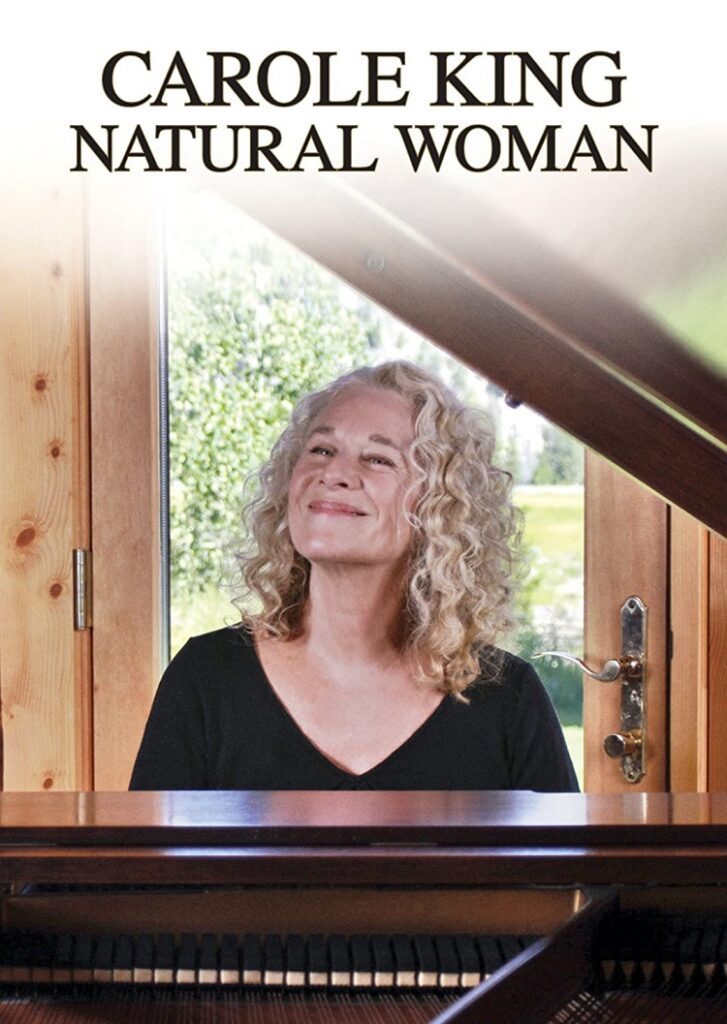
Over the last few years, singer/songwriter Carole King has enjoyed a career resurgence. Her bestselling memoir, A Natural Woman, bowed to positive reviews in 2012 Beautiful, the musical based on King’s life, debuted on Broadway in 2014 and is still going strong. Last year, she was feted at the Kennedy Center Honors, with Aretha Franklin bringing King to tears with her passionate rendition of “(You Make Me Feel Like) A Natural Woman.” The celebration continues with the American Masters salute borrowed from that song title, a program which airs this week on PBS stations. Through King’s words, rare photos, archival footage, and recollections from friends and colleagues, Natural Woman provides an impressive overview of her personal and professional life.
The documentary traces King’s journey from piano prodigy to her years writing songs for Don Kirshner’s Aldon Music (located directly across from another famous songwriting site: the Brill Building). The program also details her relationship with Gerry Goffin, a lyricist she met while both attended Queens College. After marrying in 1957 (the show includes rare home videos of their wedding), they dropped out of school to work day jobs while honing their skills as composers. King, along with fellow songwriters Barry Mann and Cynthia Weil, recall their years cranking out songs for artists such as the Shirelles, the Drifters, and the Monkees. Natural Woman provides an interesting comparison and contrast of Goffin and King’s style, illustrating that his melancholy words were balanced through King’s optimistic-sounding melodies.
After King and Goffin divorced in 1968, King relocated to California to embark on a solo career. She formed a band, The City, but found little success. In Laurel Canyon she met peers such as James Taylor and Joni Mitchell, who inspired her to release the solo albums Writer and Tapestry. The latter solidified her status as a formidable artist , with Tapestry winning Grammy Awards for record, song, and album of the year, as well as best female vocalist. She was the first female artist to accomplish such a feat, and the album remained the best-selling album by a woman for the next 25 years. Here is where Natural Woman shines, as Tapestry producer Lou Adler provides insight into the album’s sound. It was meant to be an intimate experience, he explains, simulating King sitting in one’s living room playing music. The documentary also points out how Tapestry represented the 1970s singer/songwriter movement, stating that such inward-looking lyrics were a reaction to the disillusionment of 1960s idealism.
Natural Woman then summarizes her life post-Tapestry, including moving to an Idaho ranch and becoming an environmental activist. It discusses the bad times as well, particularly an abusive relationship that King finally escaped. Overall, Natural Woman paints King as a reflective artist, pondering her place in the musical landscape and now cherishing the songs she wrote with Goffin. Due to time constraints, it does not provide a thorough examination of her life—consult her autobiography for such details. Longtime fans will appreciate this fond look back at her illustrious career, and those unfamiliar with her art will learn why she remains a significant figure in music history.